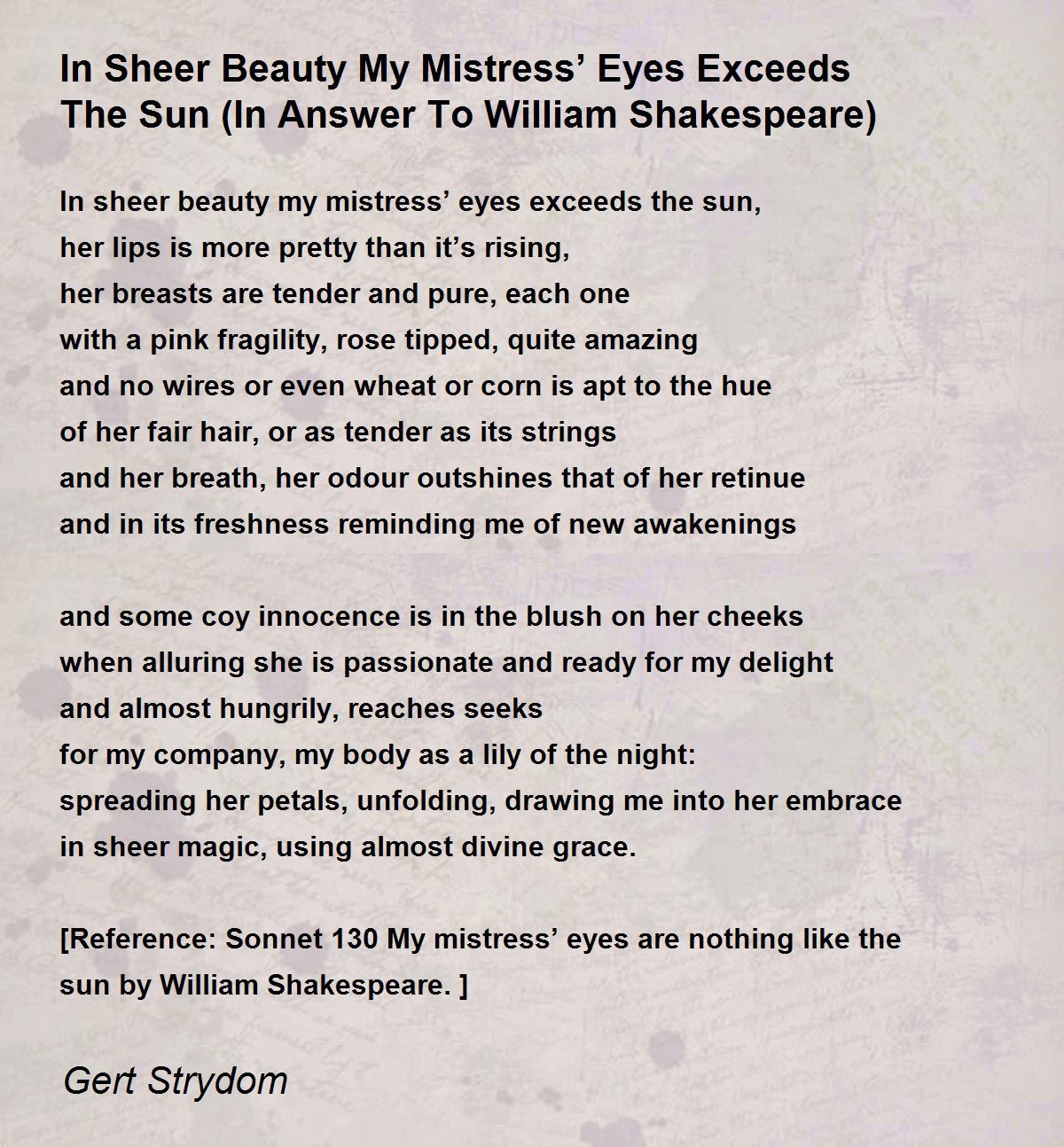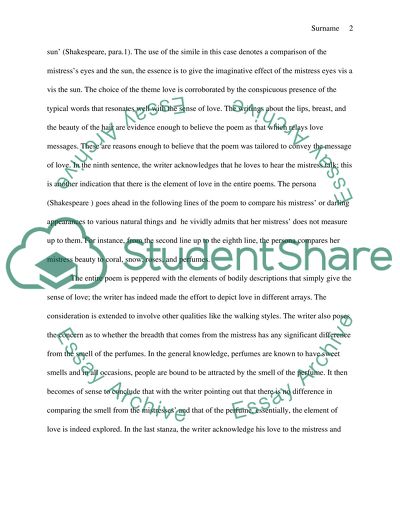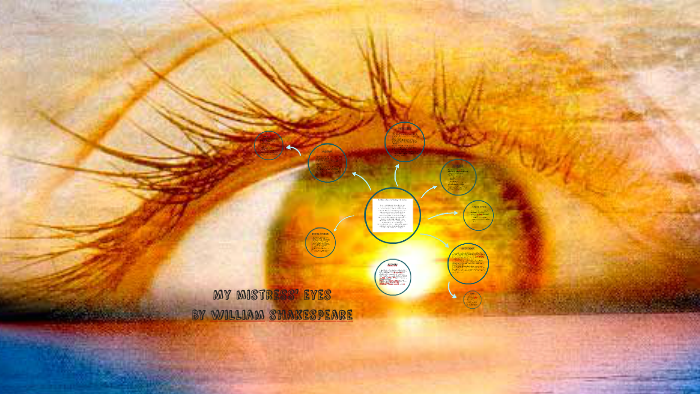"My mistress' eyes are nothing like the sun" is a line from a sonnet written by William Shakespeare. The poem is a parody of traditional love poetry, in which the speaker describes his mistress in a series of comparisons to beautiful natural objects, such as the sun, the white snow, and the red roses. However, in each comparison, the speaker points out that his mistress does not live up to these idealized images.
At first glance, the poem seems like a harsh critique of the speaker's mistress, but upon closer examination, it becomes clear that the speaker is not really trying to put her down. Rather, he is using irony and humor to subvert the traditional conventions of love poetry and to express his love for her in a more authentic and honest way.
In the first quatrain, the speaker compares his mistress' eyes to the sun, but notes that they are not as bright or radiant. He also compares her skin to snow, but points out that it is not as white. In the second quatrain, he compares her lips to red roses, but notes that they are not as red. In each of these comparisons, the speaker is poking fun at the idea that physical beauty is the most important quality in a person, and suggesting that his mistress is more than just a pretty face.
In the third quatrain, the speaker continues to list his mistress' physical imperfections, such as her breath that "reeks" and her "black wires" for hair. But despite these flaws, the speaker insists that he still finds her beautiful. He compares her to a "fair truth" that is "too fair to be true," and concludes that she is "my mistress, but I love her" - a statement that reveals the depth of his affection for her.
The final couplet of the poem sums up the speaker's argument: "And yet, by heaven, I think my love as rare / As any she belied with false compare." In other words, the speaker believes that his love for his mistress is just as rare and valuable as any love that has been praised with exaggerated comparisons.
In conclusion, "My mistress' eyes are nothing like the sun" is a clever and witty poem that uses irony and humor to challenge the conventional notion that physical beauty is the most important quality in a person. Through his playful comparisons, the speaker ultimately reveals his deep love and appreciation for his mistress, flaws and all.






